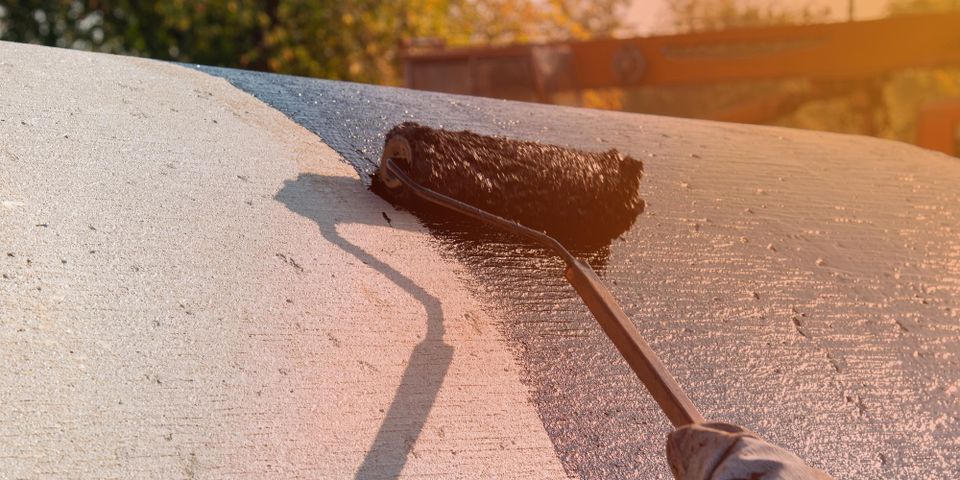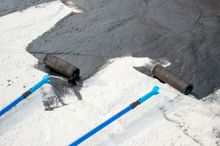The Difference Between Damp-Proofing & Waterproofing

Knowing the difference between damp-proofing and waterproofing can make or break a project. Contractors new to the industry can confuse the two because they are similar, but there are major distinctions. The processes and conditions regulated by the International Residential Code (IRC) outline these differences for a waterproof contractor.
Damp-Proofing
What It Is
According to the IRC, any concrete foundation walls that retain earth or enclose belowground interior spaces need to be damp-proofed. This process is designed to slow water penetration to reduce the chances of moisture getting into the concrete. Damp-proofing cannot seal larger cracks, holds, or surface protrusions. It’s not used or typically recommended as much as waterproofing, but it may be appropriate in some conditions such as when there’s a lack of hydrostatic pressure. The downward force of hydrostatic pressure would push the moisture right through the damp-proof coating.
How It’s Done
A damp-proofing concrete contractor will use a mixture of asphalt or tar to coat the concrete exterior. This coating on the surface is usually less than 10 mils (thousandths of an inch) in thickness—for reference, a credit card is typically 30 mils thick. This application must be installed along with foundation drains at the footing and surface drainage.
Waterproofing
What It Is
 According to the IRC, waterproofing is required in severe soil-water conditions or a shallow water table. However, many construction teams and property owners choose to hire a waterproof contractor even if it’s not required since it’s an effective way to protect foundations. It’s especially important for habitable spaces such as finished basements. Waterproofing is designed to stop all water infiltration, even under hydrostatic pressure. Basement waterproofing must also be able to seal larger cracks or holes and stop the passage of water vapor.
According to the IRC, waterproofing is required in severe soil-water conditions or a shallow water table. However, many construction teams and property owners choose to hire a waterproof contractor even if it’s not required since it’s an effective way to protect foundations. It’s especially important for habitable spaces such as finished basements. Waterproofing is designed to stop all water infiltration, even under hydrostatic pressure. Basement waterproofing must also be able to seal larger cracks or holes and stop the passage of water vapor.
How It’s Done
There are many different materials that a waterproof contractor might use, such as rubberized asphalt, urethane coating, butyl rubber sheeting, and rubber- or clay-based coatings. Waterproofing materials are typically applied to more than 40 mils thick. These materials are flexible, which will help them seal cracks that appear even after application.
Pro-Crete Systems of Florida is the local expert waterproof contractor with more than 30 years of experience in the industry. They are based in Largo, FL, and know how to protect your building from local climate and soil conditions. They offer a full range of services in addition to waterproofing designed to keep your foundation in top condition, such as concrete repair. Learn more by visiting their website or call (727) 526-8090 to request an estimate.
About the Business
Have a question? Ask the experts!
Send your question

